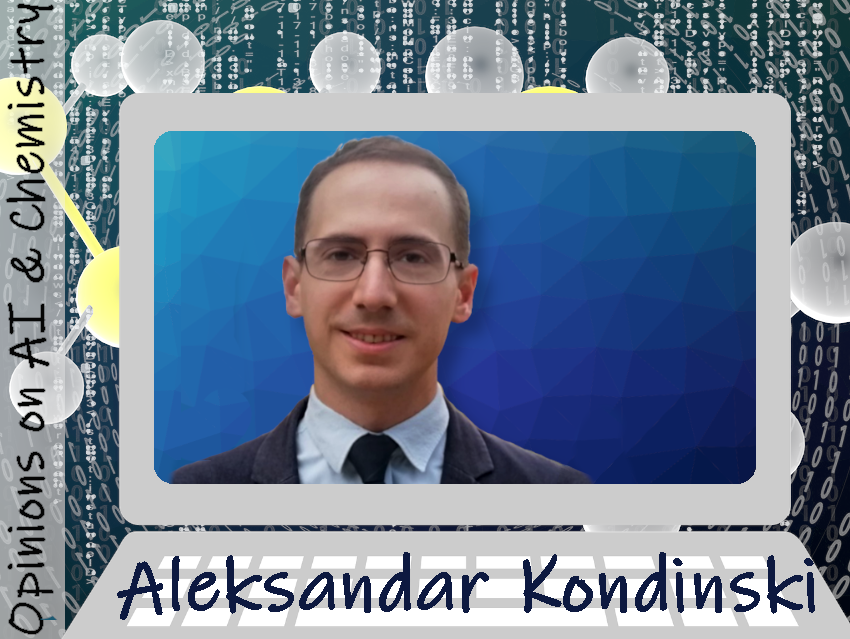The intersection of chemistry and artificial intelligence (AI) is a fascinating area that attracts a lot of attention in both research and industry. We talked to people working in the field about the potential of AI to revolutionize chemical research, but also concerns, (current) limitations, and ethical implications for chemical applications. We also asked for ideas to try or experiment with, as well as useful articles and videos for beginners and advanced users.
Dr. Aleksandar Kondinski, Cambridge Centre for Advanced Research and Education in Singapore Ltd., works in the field of knowledge engineering in chemistry.
What fascinates you about AI?
What truly fascinates me about AI in chemistry is the prospect that perhaps in the not-so-distant future, I might be able to explore more chemistry in a single afternoon than a highly productive chemist from the late 20th century could have in their entire lifetime. This rapid exploration provides our cognitive system with a novelty, which, if I understand correctly, stimulates our dopaminergic system.
However, an aspect that also concerns me is the potential for this novelty excitement to become so captivating that it verges on addictive. Thus, one should think about the balance between the fascination of possibilities AI can provide in exploring chemistry and mindful engagement with this technology.
Is there anything we should fear?
The fear that resonates with many, extending beyond the realm of chemistry, is likely the fear of missing out. This is probably a quintessentially human experience that spans centuries. During the Industrial Revolution, the concentration of “the means of production” in fewer hands sparked widespread dissatisfaction and a sense of lost agency. Initially, scientists were insulated from this industrialization, but now, with the advent of generative AI, the “means of knowledge production” seem to be shifting similarly. This change understandably concerns many, particularly millennial scientists, and their concerns are valid.
However, it is important to remain mindful and think about how we can best and most creatively contribute professionally and privately over our lifetime.
Do you have something for our readers to try out or experiment with?
Teaching and learning chemistry through narration is something that I personally find very interesting and engaging. Over the past two decades, many books have leveraged this aspect, and when originally reading them, I enjoyed them quite a lot. This is because, behind many important chemicals, concepts, and processes, there is some form of a story that can be genuinely inspiring.
In this regard, tools such as DALLE 3 are quite interesting and probably not yet explored in providing visual narratives for chemistry lectures or video shorts. Definitively, something that is worthwhile checking and exploring.
Can you recommend a good article/video/website for beginners and one you enjoyed recently?
Platforms such as edx and openHPI offer a wide array of course materials relevant to AI technology; however, they provide little information on how it is practically applied in solving chemistry problems.
For people who have just started, this often feels overwhelming as there is way too much information, and the rate of development is too fast. To navigate through this, I may recommend first grasping the big picture and then going into details.
The IBM Technology educational YouTube channel can be a good start, as many of the tutorial videos balance depth and breadth. Following this, tutorial reviews are a good follow-up option, especially if they discuss chemical information and general algorithms.
Is there anything else you would like to share with readers of ChemistryViews?
We are living in a very exciting period for chemistry, and I encourage everyone to stay up to date. There will be a plurality of visions and approaches, many of which are covered by ChemistryViews. The hope for 2024 is to be scientifically exciting but globally peaceful.
Thank you very much for the insights.
back to “Opinions on AI & Chemistry”




